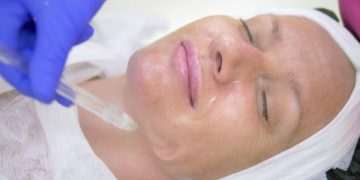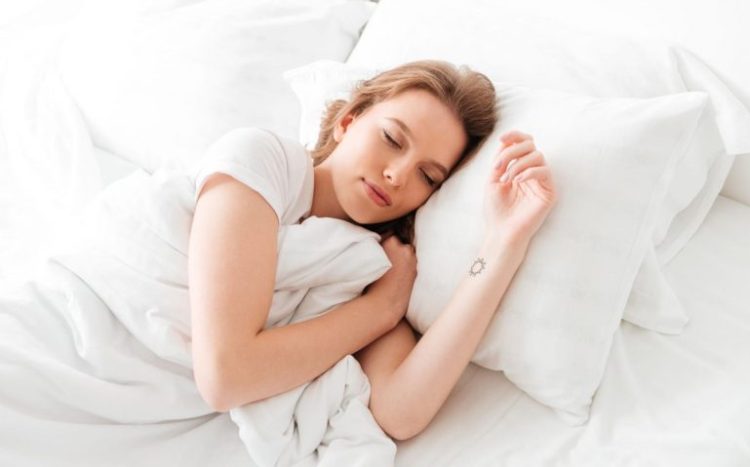Quality sleep is essential for physical recovery, mental clarity, immune function, hormone regulation, and emotional well-being. During deep sleep, your body initiates powerful repair processes: muscle growth, tissue regeneration, detoxification, and memory consolidation. Yet in today’s fast-paced, screen-saturated environment, many people suffer from sleep disturbances, insomnia, or shallow rest that compromises both energy levels and long-term health.
Improving your nighttime routine and understanding how sleep supports the body’s natural healing systems can lead to deeper, more restorative rest. This article explores practical, science-based strategies for optimizing sleep to enhance total body recovery and repair.
1. Why Sleep Is Critical for Recovery
Sleep isn’t passive rest — it’s an active biological process during which your body performs essential maintenance:
Physical Repair:
- Muscle recovery through protein synthesis and release of growth hormone
- Cellular repair from oxidative stress and daily wear
- Immune regulation to fight infections and inflammation
Mental Restoration:
- Memory consolidation and learning integration
- Emotional processing via REM sleep
- Hormonal balance, including cortisol, melatonin, and leptin
Lack of quality sleep impairs these functions, leading to fatigue, slow recovery, poor skin health, lowered immunity, and cognitive fog.
2. Create a Consistent Sleep Schedule
The body runs on a circadian rhythm — an internal clock that regulates sleep-wake cycles based on light, temperature, and habit. Irregular sleep times disrupt this rhythm, reducing sleep quality.
Recommendations:
- Go to bed and wake up at the same time every day, including weekends
- Follow a consistent wind-down routine to signal your body it’s time for rest
- Avoid long or late naps that interfere with nighttime sleep
Consistency helps your body anticipate sleep, making it easier to fall asleep and stay asleep through the night.
3. Design a Sleep-Friendly Bedroom Environment
Your sleep environment significantly affects how quickly you fall asleep and how deeply you stay asleep.
Optimize these key factors:
- Darkness: Use blackout curtains or an eye mask to block artificial light
- Cool temperature: Ideal range is 16–20°C (60–68°F) for most people
- Silence or soothing sounds: Consider white noise, nature sounds, or earplugs
- Comfort: Invest in a supportive mattress, ergonomic pillows, and breathable bedding
Avoid using your bedroom for work or entertainment, so your brain associates the space strictly with sleep and rest.
4. Limit Light Exposure in the Evening
Melatonin, your natural sleep hormone, is produced when darkness signals your brain that it’s time to sleep. Bright lights — especially blue light from screens — suppress melatonin and delay sleep onset.
Actions to take:
- Dim lights at least 1–2 hours before bed
- Avoid screens (phone, TV, tablet) during this time, or use blue light filters
- Try amber-tinted glasses or apps like f.lux to reduce screen glare
- Use warm light bulbs in the evening to mimic sunset tones
Even short-term exposure to bright light can delay melatonin production by over an hour.
5. Avoid Stimulants and Heavy Meals Before Bed
Certain substances and dietary habits can interfere with sleep depth and timing.
Avoid:
- Caffeine (coffee, energy drinks, black tea, chocolate) at least 6–8 hours before bed
- Alcohol close to bedtime — it may make you drowsy initially but disrupts REM sleep
- Large or spicy meals late at night, which can cause indigestion or heartburn
Instead, consider a light snack rich in magnesium or tryptophan, like:
- A banana with almond butter
- Warm milk or chamomile tea
- Oats with honey
These can promote relaxation and melatonin production.
6. Incorporate Relaxation Techniques
A racing mind is one of the most common barriers to falling asleep. Relaxation techniques help calm the nervous system and reduce stress hormones like cortisol.
Effective methods:
- Deep breathing: Inhale for 4 counts, hold for 7, exhale for 8
- Progressive muscle relaxation: Tense and release muscle groups gradually from head to toe
- Guided meditation or sleep stories via apps like Calm or Headspace
- Gratitude journaling to reduce mental clutter and anxiety
Establishing a nightly ritual, such as reading or stretching, also helps create predictability and calm.
7. Exercise — But Not Too Late
Physical activity improves sleep by reducing stress, enhancing body temperature regulation, and promoting deeper slow-wave sleep.
Best practices:
- Engage in moderate aerobic activity (e.g., walking, swimming, cycling) most days
- Include strength training 2–3 times a week for improved recovery and sleep depth
- Avoid vigorous exercise within 1–2 hours of bedtime, which can elevate adrenaline
A morning or afternoon workout often leads to faster sleep onset and fewer nighttime awakenings.

8. Support Hormonal Balance with Sleep
Sleep influences key hormones that govern energy, appetite, recovery, and mental focus:
- Growth hormone: Released during deep sleep; essential for tissue repair
- Cortisol: Should drop at night; sleep deprivation keeps it elevated
- Melatonin: Needs darkness to be produced properly
- Leptin & Ghrelin: Regulate appetite; disrupted by poor sleep
Getting 7–9 hours of high-quality sleep each night is necessary for these hormonal systems to function optimally.
9. Limit Fluid Intake in the Evening
Waking up to use the bathroom disrupts sleep cycles and reduces total sleep time. To prevent this:
- Limit water and tea intake 1–2 hours before bed
- Empty your bladder before getting into bed
- Avoid diuretics like caffeine or alcohol in the evening
Staying hydrated during the day reduces the need for late-night fluids.
10. Know When to Seek Professional Help
If you consistently struggle with falling asleep, wake frequently during the night, or feel unrested despite adequate time in bed, consider seeing a doctor or sleep specialist.
Possible conditions include:
- Insomnia
- Sleep apnea
- Restless leg syndrome
- Circadian rhythm disorders
Professional evaluation can lead to targeted treatment options such as cognitive behavioral therapy for insomnia (CBT-I), breathing devices, or melatonin supplements under supervision.
Conclusion
High-quality sleep is not a luxury — it is a biological necessity for recovery, mental clarity, immunity, metabolism, and emotional stability. By optimizing your sleep environment, aligning your routine with natural circadian rhythms, avoiding sleep-disruptive habits, and incorporating calming rituals, you can dramatically improve how well you rest and recover each night.
Make sleep a consistent priority. Your body will heal more efficiently, your mind will function more clearly, and your energy levels will rise as a result.












































